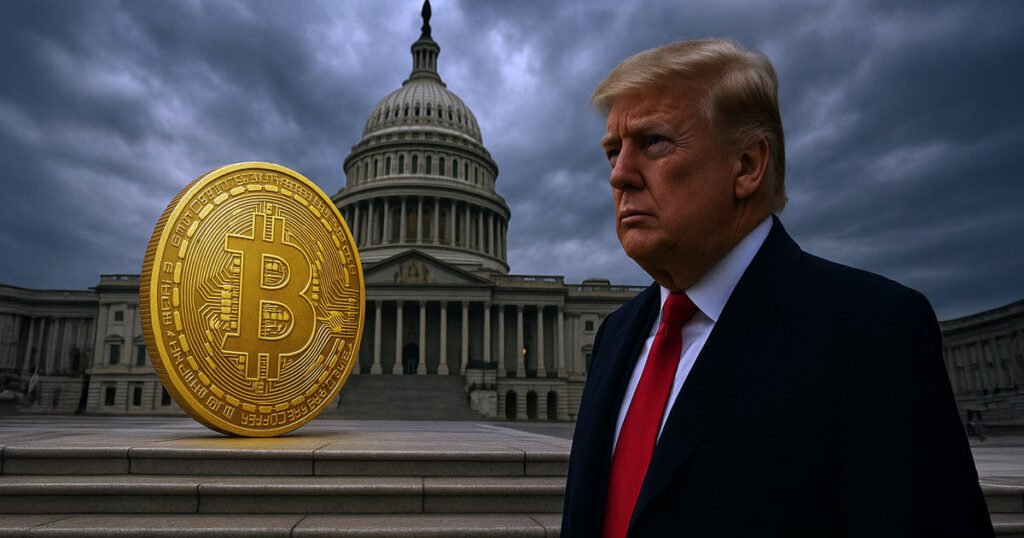Donald Trump on Bitcoin: A Strategic Perspective on US Digital Asset Leadership
In recent remarks during a White House press conference on June 27, President Donald Trump provided a compelling perspective on Bitcoin (BTC) and the cryptocurrency landscape in the United States. Amidst celebrations of a significant Supreme Court victory for his administration, Trump emphasized that digital assets like Bitcoin “take a lot of pressure off the dollar.” He outlined how America’s leadership in this burgeoning sector is essential to curbing China’s ambitions to dominate digital finance. By positioning cryptocurrencies as a crucial industry, he highlighted their potential to generate jobs, investments, and economic resilience.
Trump, who declared himself a “fan of crypto” years ago, noted a key observation during the recent market downturn: Bitcoin and other cryptocurrencies experienced less volatility than traditional equities. This resilience of digital assets underlined his argument that the U.S. has developed a formidable digital asset industry that is not only vibrant but also critical to American economic interests. More merchants are now accepting Bitcoin for payments, indicating a growing acceptance of cryptocurrencies in mainstream commerce. Trump’s insistence on nurturing this sector reflects his belief that neglecting these digital assets would allow countries like China to take the lead.
The President also faced questions regarding the management of his family’s cryptocurrency investments. When asked if he would pause these activities to gain Democratic support for pending cryptocurrency legislation, Trump firmly declined. He stated that his sons manage the family portfolio and asserted that his personal financial interests are secondary to the broader goal of U.S. dominance in digital assets. This statement highlights a belief that the strategic advantage of the U.S. in cryptocurrencies outweighs personal investment considerations. His remarks underscore the importance he places on national interests over private financial concerns.
The Trump family is actively involved in various cryptocurrency initiatives, including World Liberty Financial (WLFI), which features its stablecoin, USD1. Additionally, they have formed a partnership with the creators of the TRUMP memecoin, announcing plans for the WLFI to acquire a substantial holding in that token. These involvements highlight the family’s commitment to engaging with the evolving landscape of digital assets while seeking to leverage these investments as part of a larger national strategy.
On the legislative front, draft bills currently circulating in the House and Senate aim to provide clarity on essential cryptocurrency issues, such as defining what constitutes a security, establishing a federal licensing structure for trading platforms, and developing a framework for stablecoins in the U.S. However, Democratic lawmakers have urged Trump to divest from personal investment ventures to facilitate the progress of these legislative measures. In response, Trump insisted that the statutory debates should focus on the merits of the proposals themselves, rather than personal financial ties.
Moreover, Trump has recently advocated for a more streamlined approach to passing stablecoin legislation, calling for a clean version of the proposed bill to expedite its approval. By pushing for clarity and expedited legislative action, his administration aims to position the U.S. as a leader in the evolving cryptocurrency market, ensuring that American interests are adequately represented and protected. This commitment could not only foster innovation and investment in digital assets but also mitigate the risk of foreign powers, particularly China, outpacing the U.S. in this crucial economic sector.
In conclusion, President Trump’s remarks on Bitcoin and digital assets underscore a strategic viewpoint centered on U.S. economic leadership and national security. By framing cryptocurrencies as an essential industry capable of relieving pressure on the dollar, he articulates a vision for America that embraces innovation in the financial sector. His advocacy for legislative clarity and his family’s active investments further demonstrate a concerted effort to solidify the U.S. position in the digital asset landscape amidst increasing global competition from nations such as China. As the market continues to evolve, Trump’s approach could significantly influence both the trajectory of digital assets and the future of American economic leadership.

















